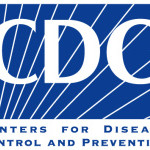- Branża: Government
- Number of terms: 6326
- Number of blossaries: 0
- Company Profile:
An adherence-enhancing strategy in which an HCW or other designated person watches the patient swallow each dose of medication.
Industry:Health care
A technique that allows rapid and precise identification of mycobacteria (e.g., M. tuberculosis and M. bovis) that are grown in culture. The identification can often be completed in 2 hours.
Industry:Health care
Microscopic particles (i.e., 1-5 mm in diameter) produced when a person coughs, sneezes, shouts, or sings. The droplets produced by an infectious TB patient can carry tubercle bacilli and can remain suspended in the air for prolonged periods of time and be carried on normal air currents in the room.
Industry:Health care
A resistance to one or more anti-TB drugs that exists before a patient is treated with the drug(s). Primary resistance occurs in persons exposed to and infected with a drug-resistant strain of M. tuberculosis.
Industry:Health care
The anti-TB drugs to which the tubercle bacilli cultured from a TB patient are susceptible or resistant based on drug- susceptibility tests.
Industry:Health care
Laboratory tests that determine whether the tubercle bacilli cultured from a patient are susceptible or resistant to various anti-TB drugs.
Industry:Health care
A resistance to one or more anti-TB drugs that develops while a patient is receiving therapy and which usually results from the patient's nonadherence to therapy or the prescription of an inadequate regimen by a health-care provider.
Industry:Health care
A first-line, oral anti-TB drug sometimes used concomitantly with INH, rifampin, and pyrazinamide.
Industry:Health care
A second-line, oral anti-TB drug used primarily for treating drug-resistant TB.
Industry:Health care
The condition of being subjected to something (e.g., infectious agents) that could have a harmful effect. A person exposed to M. tuberculosis does not necessarily become infected (see Transmission).
Industry:Health care
